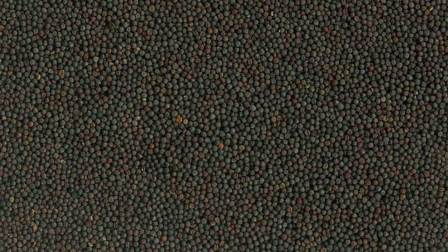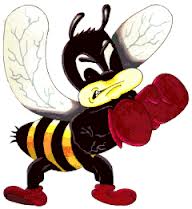Sponsored by Austrian Pumpkin Seed Oil
EFSA Identifies Risks To Bees From Neonicotinoids
The world took notice as a press release issued in January 2013, by the European Food Safety Authority (EFSRA), concluded that systemic pesticides called neonicotinoids posed a serious threat to bee health. EFSRA defines neonicotinoids as “a class of insecticides with a common mode of action that affects the central nervous system of insects, causing paralysis and death. A number of recent studies have suggested that exposure to neonicotinoids at sub-lethal doses can have significant negative effects on bee health and bee colonies.
Given the importance of bees in the ecosystem and the food chain and given the multiple services they provide to humans, their protection is essential. With its mandate to improve EU food safety and to ensure a high level of consumer protection, EFSA has an important role to play in ensuring their survival. The Authority’s review of neonicotinoids is one element in a range of activities it is undertaking on bee health. EFSA has recently completed a review of all its activities related to bees and is now identifying data and research gaps.”
Making The Case
One Member of the European Parliament, Mr. Alyn Smith, spoke up in a powerful statement by staying, “I have been saying this for some time: the worrying decline in bee numbers is, at least in part, caused by toxic chemicals sprayed on our fields. I simply do not see how any other conclusion is possible based on the evidence available, not least after the EFSA study found clear links between the use of the chemicals and damage to bees.”

Rapeseed (Brassica napus), also known as Rape, Oilseed Rape, and Rapa, is used in the production of animal feed, vegetable oil for human consumption, and biodiesel. This is one of the key crops which are treated with neonicotinoids.
The Vote Heard Round The World
After the European Food Safety Authority (EFSA) deemed the use of neonicotinoids to be an unacceptable risk, the European Commission proposed a two year ban across the continent, on the use of three neonicotinoids (Imidacloprid, Clothidanidin and Thiamethoxam) from use on corn, oil seed rape, apples, carrots, strawberries and many other flowering crops in order to further assess the environmental impact. Last Friday, March 15, 2013, there was a vote by the European Commission and the ban failed to pass by the majority. Although key countries such as Germany and the UK failed to back the plan, environmentalists, beekeepers and scientists are hopeful because there is a great chance that it can pass by the appeals committee.
Listen To The Interview
As we continue our special series called “The Neonicotinoid View”, host, June Stoyer and guest co-host, Tom Theobald, will be joined by Mr. Alyn Smith, who is a Member of the European Parliament. Mr. Smith is also a member of the European Parliament’s Agriculture and Rural Development Committee. We will be discussing his position on neonicotinoids as well as the situation with the proposed ban.
Later on in the show, environmentalist, bee health advocate and beekeeper, Graham White, who has been campaigning against neonicotinoids, will explain the recent developments in Europe with the proposed ban. Listen to the interview using the video player below. You can also subscribe to our feed directly by clicking here or on iTunes by clicking here.
Beekeepers & Environmental Groups Get Ready To Rumble With The EPA
In a press release titled, Beekeepers and Public Interest Groups Sue EPA Over Bee-Toxic Pesticides, dated March 21, 2013, a law suit was filed against the EPA by the following beekeepers and environmental groups over bee-toxic pesticides:
- Steve Ellis of Old Mill Honey Co. (MN, CA),
- Jim Doan of Doan Family Farms (NY),
- Tom Theobald of Niwot Honey Farm (CO)
- Bill Rhodes of Bill Rhodes Honey (FL)
- Beyond Pesticides,
- Center for Food Safety,
- Pesticide Action Network North America,
- Sierra Club,
- and the Center for Environmental Health.
The suit was filed due to administrative failure by the EPA to ensure that honeybees and other pollinators, birds, and the environment are protected. The abuse of conditional registration to push through bee-toxic chemicals is also cited.
One of the plaintiffs, Steve Ellis, stated, “America’s beekeepers cannot survive for long with the toxic environment EPA has supported. Bee-toxic pesticides in dozens of widely used products, on top of many other stresses our industry faces, are killing our bees and threatening our livelihoods,” said plaintiff, Steve Ellis, a Minnesota and California beekeeper. “Our country depends on bees for crop pollination and honey production. It’s time for EPA to recognize the value of bees to our food system and agricultural economy.”
According to the EPA’s website, its mission states that the EPA’s purpose is to ensure that:
- all Americans are protected from significant risks to human health and the environment where they live, learn and work;
- national efforts to reduce environmental risk are based on the best available scientific information;
- federal laws protecting human health and the environment are enforced fairly and effectively;
- environmental protection is an integral consideration in U.S. policies concerning natural resources, human health, economic growth, energy, transportation, agriculture, industry, and international trade, and these factors are similarly considered in establishing environmental policy;
- all parts of society — communities, individuals, businesses, and state, local and tribal governments — have access to accurate information sufficient to effectively participate in managing human health and environmental risks;
- environmental protection contributes to making our communities and ecosystems diverse, sustainable and economically productive;
- and the United States plays a leadership role in working with other nations to protect the global environment.
According to statistics from the American commercial beekeeping community, the USA has already lost over 70% of its commercial honeybees. With peer-reviewed scientific evidence accumulating from renowned scientists such as Dutch Toxicologist, Dr. Henk Tennekes, Dr Alex Lu (Harvard), Dr. Francisco Sánchez-Bayo (Australia) and Dr. Christian Krupke (Purdue), Dr. Goulson (UK), the neonicotinoid issue is not just about honeybees but clearly has become a global crisis.



This definitely is the world’s problem and not just the beekeepers. For the people that don’t get it, perhaps when everyone has cancer or some sort of disease, then it will be clear. We just keep dumping one chemical after the other and it has got to end before life as we know it ends!
If the ban isn’t going to pass in the EU, it will be interesting to see if the Americans will win this suit.
Hi Kyle,
Don’t have any doubts – the vote WILL pass in the EU in 3 weeks time and neonics WILL be banned in the 27 countries of Europe including UK, France, Germany, Italy, Holland, Poland etc. The proposed ban actually WON in the recent vote – by 13 votes to 9 – but they regard the 5 abstentions as counting too. Next time the vote is put it will only require a simple majority vote, and since they already have a majority of 4, it is unlikely that the proposal will fall. No country has indicated that I intends to radically revise its vote. So – neonics are gone. This will bring huge pressure to bear on the EPA and will highlight the fact that America’s ‘environment agency’ is a dead duck. A $10 billion dead duck, run by Monsanto.
Does it even make sense anymore to keep the EPA around? What is the point if they are not going to do the job they are supposed to do. This is absolutely unforgivable that they continue carrying on without going through the proper procedures that were set in place for this very reason!
Whilst the corporations would like to see this whole thing dissappear, there still is the appeals process ahead. It is fab that Mr. Smith is supporting the environment and I enjoyed listening to his perspective as well as Mr. White’s. Let’s keep the pressure on, shall we?
It is a known fact that Bayer owns Germany and Syngenta owns the UK. Did they really think the ban was going to happen?
It is sad to see the decline of honeybees and other pollinators, which are our indicator species. We are all connected and what happens to these insects will inevitably impact human health. It should be mandated that the human health impact must be conducted before any chemical is given conditional or full registration. The fact that this has been going on for decades is what is most upsetting. Hopefully, the beekeepers and these organizations can get the EPA to do the job they are supposed to do…PROTECT LIFE!
The global threat of neonicotinoids is something we all need to continue to raise awareness for. Thank you for your work on The Neonicotinoid View. I appreciate the information you put out each week from the scientific community. There is so much to learn and we are running out of time!
Now that this has amassed global attention, I sincerely doubt that the EU is going to cave, regardless of how many politicians are in the pockets of the chemical corporations.
I just saw this on twitter. The more attention this receives the better! Excellent interview. I think both gentlemen had very good points. I think Mr. Smith is right, with the Precautionary Principle, you can use that to not want to get out of bed. It will be quite interesting to see how things develop.
If this is the actual definition from the EPA then why aren’t they doing their job? Who do they really answer to?
What gets me is that they hide behind the generic term of Colony Collapse Disorder which is ridiculous. Meanwhile, they are basically creating more and more layers of toxic chemicals that will inevitably kill all life.
Great interview! Keep up the good work! I’ve been following you on twitter for a few years now.
Thanks for the post. We are all in this together!
We need bees more than they need us. We should never jeopardise the potential food bowl of the future for short term monetary benefits. Is it worth it, really? Ban Neonicotinoids yesterday!